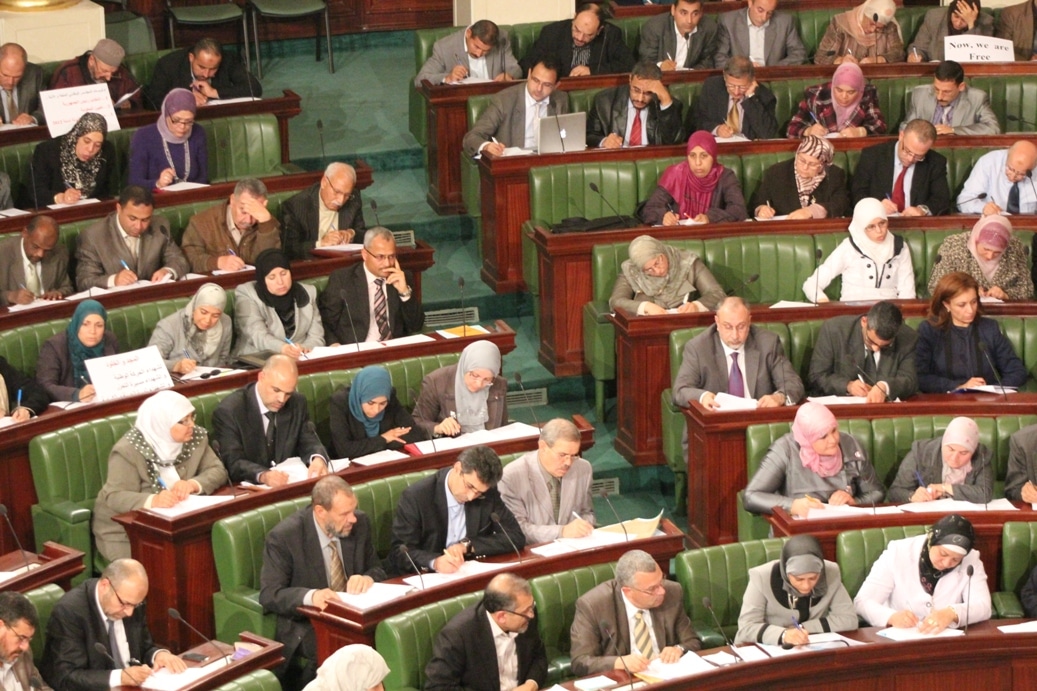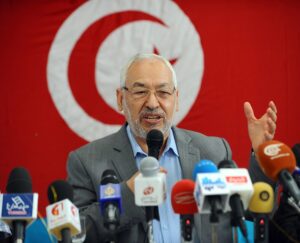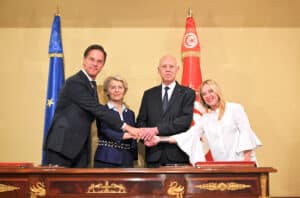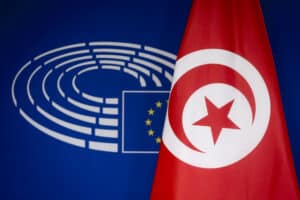On 10 October Tunisians voted in the parliamentary elections which took place amid a presidential campaign as well. The Ennahda party came first in the parliamentary elections but only managed to get 52 of the 217 seats in a deeply fragmented parliament. Efforts to form a coalition government have been hindered by the division among the political parties and the fact that many parties oppose any cooperation with the moderate Islamist Ennahdha party. The first steps towards the formation of a coalition were made when the Tunisian parliament elected Ennahdha party’s Rached Ghannouchi as its speaker after the rival Heart of Tunisia party, headed by Media Tycoon Nabil Karoui, backed his appointment. This signals the willingness of the Heart of Tunisia party to join its rival Ennahdha in a future coalition government. Still the formation of a coalition in the near future seems unlikely, the Ennahda party has tasked Habib Jemli with forming a government. As written in the law, Jemli has only two months to successfully form a government. If he fails to do so a second attempt of two months will be made by a party chosen by the President, if this attempt fails the president is obliged by law to call for new elections.
Current status under Jemil
Few parties in the current parliament will look forward to new elections but without several parties making big compromises it remains a realistic possibility. Although Jemli regards himself as independent, his time as junior minister in the Ennahda- led government of 2011 causes many parties to be critical of his “independent role” in the formation process. Jemli has a huge task on his hands, even with the support of the Heart of Tunisia party the coalition needs the support of at least two other parties, in order to reach a majority coalition, with at least 109 seats needed to obtain a majority. Meanwhile, the Secretary-General of Ennahda, Zied Laadhari, stepped down in protest of the party’s policies and decision-making process within the party elite. The move exposed the internal struggles of the party, which had been known as a disciplined party which manages to keep internal rifts at a minimum. Figures within the party have lost faith in the ability of its President Rached Ghannouchi and Habib Jemli to steer the cabinet formation. The choice of Jemli, Laadahri said, “is putting the Islamist movement and the country on a path fraught with risks we do not know the repercussions and costs of.” Laadhari said he would have preferred for Ennahda to have nominated for prime minister an “independent personality renowned for his competence, fairness and boldness to unify the largest spectrum of Tunisians”. With the rise of the more radical Islamist party Al Karama, Ennahda’s leadership is tasked with keeping the party together while retaining their credibility, thus not give in to much on their Islamist ideals. Otherwise, new elections could prove to be a major setback for the Ennahda party. Already polls conducted by the Tunisian firm Sigma Conseil show that the party is viewed negatively by 50 % of the Tunisians.
Independent candidates named as next prime minister
Experts are discussing the possible candidates for prime minister to be proposed by the Ennahda party. Recently the Achaab’s movement, Attayar and the Tahya Tounes party blocked the appointment of a Ennahda party member as candidate for prime minister. It is expected that an independent candidate with no ties to political parties in the current assembly will be put forward. A new independent candidate is still facing the difficult task of reconciling bitter political rivals. Representatives of the social democratic party Ettakatol, like former minister Elys Fakhfakh and former speaker of the assembly Mustapha Ben Jadar, are rumored to have a shot at being chosen by President Saied, as the list of real independent political actors in the country is small. With three former ministers in the form of Mongi Marzouk, Taoufik Rajhi and Fadhel Abdelkefi also being rumoured to head the next government. And two economists, Habib Karaouli and Marwan Al-Abbasi, without any governmental experience also being named on the list of prime minister candidates. Mustapha Ben Jafar met with Habib Jemli on 25 November, after which he told the press that the public expects the democratic institutions to come out of the anarchy in which the states has been for the past years. Still a member of the executive council of Ennahda, Mohsen Al-Sudani, did not say whether the movement’s candidate for Prime Minister will be chosen from among Ennahda leaders or from outside the party.
Which problems need to be tackled
The presidential and parliamentary elections were dominated by the people’s anger about the rise of unemployment, rise of food prices and corruption by the political elite of the country. With unemployment rate at 15 percent and an inflation of nearly seven percent the anger among the Tunisian population seems justified. The new government is expected to address these problems, by revamping the economy and completing the democratic transition. Still the government is dependent on international loans to address the economic problems, which has raised concerns. Tunisia’s habit of increasing their international borrowing has escalated since 2016 in the hope of quick solutions to the country’s chronic problems, regardless of the high debt service costs involved. Tunisia’s growing debt continues to accumulate without positive results. Tunisia has agreed on a IMF reform program worth $2.9 billion, while the process of implementing these reforms has been slowed down by the political situation. The country’s debt to GDP ratio is expected to reach 75.1 percent by the end of 2020, while it only accounted for 37 percent in 2010. Meanwhile Tunisian authorities have turned to other financial institutions, like the World Bank, African Development Bank, to raise liquidity. With a caretaker government still in power and negotiation to form a new government progressing slowly, the socio-economic situation isn’t likely to improve in the near future.
Sources: Aljazeera1 Arabweekly Reuters Middleeastmonitor



